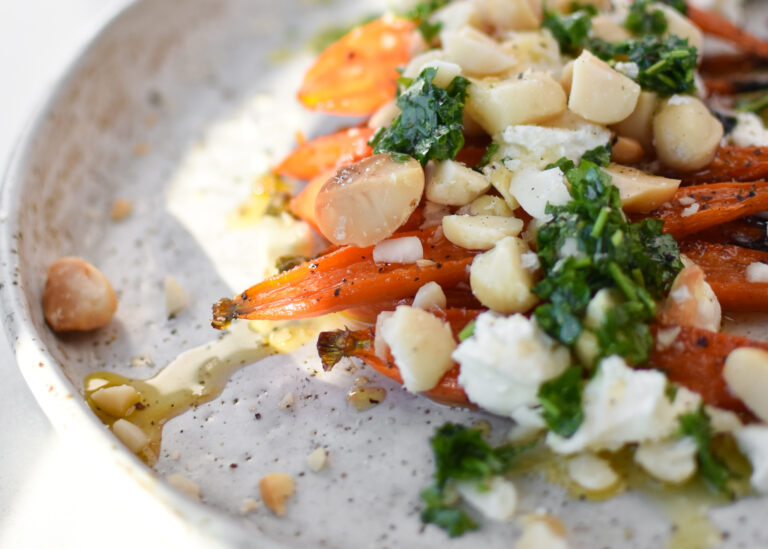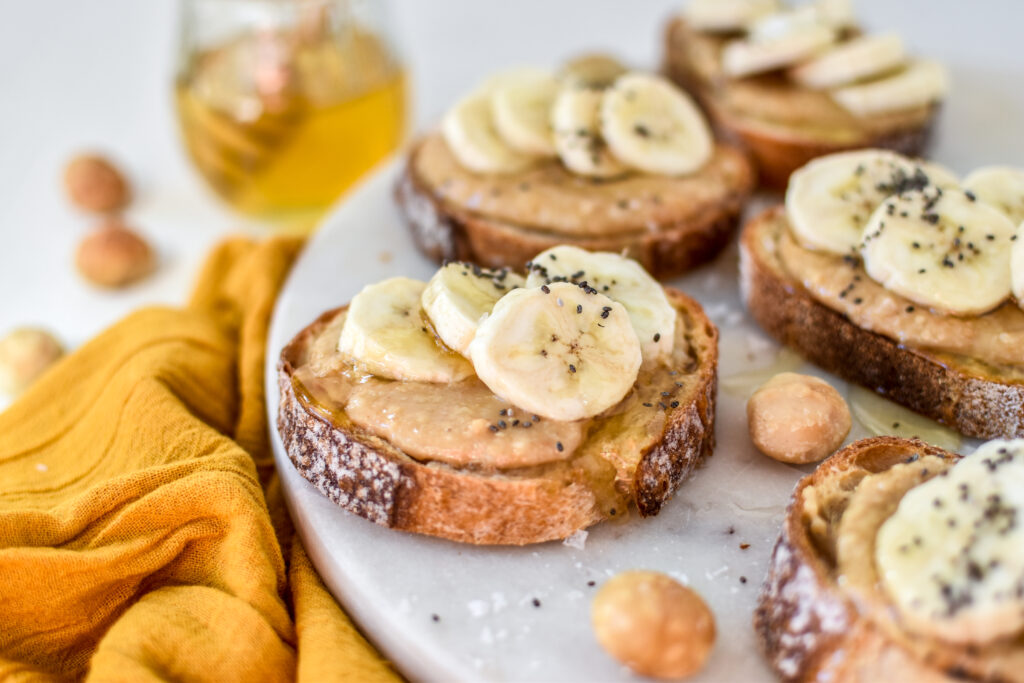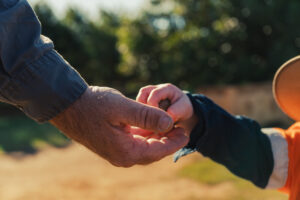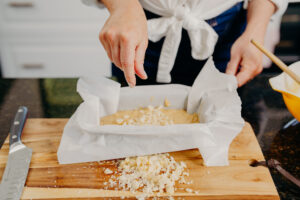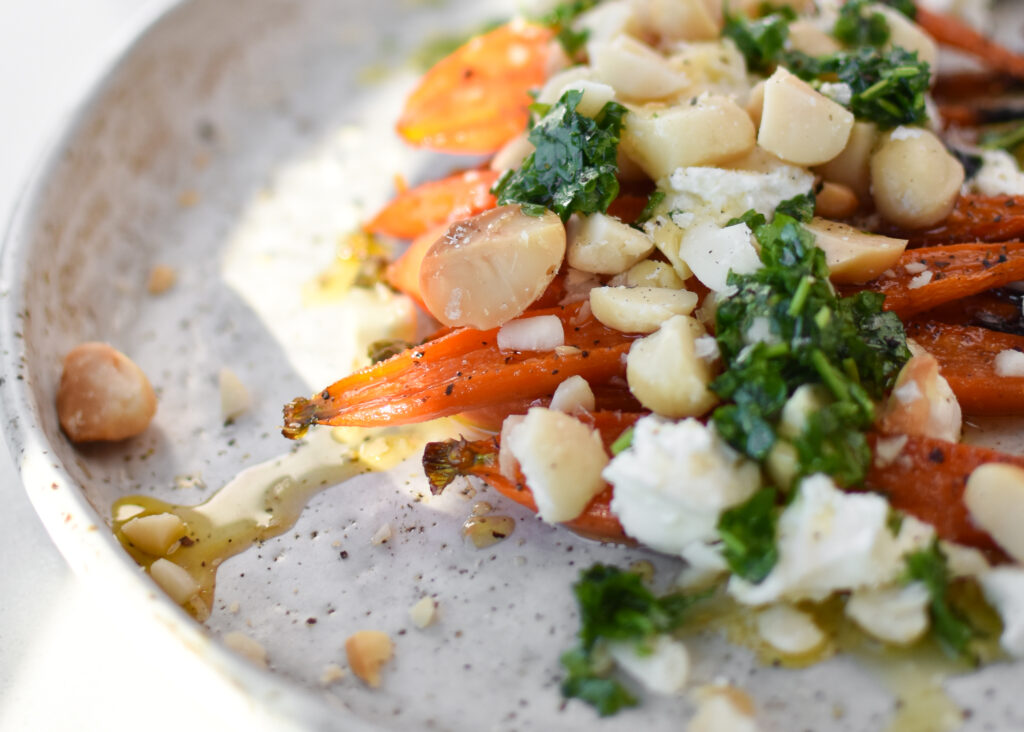Promoting biodiversity
Home » Sustainability » Promoting biodiversity
Biodiversity is key to macadamia farms being able to grow the decadent nuts we all love as well as to help protect and preserve the natural environment that sustains the industry. In the world of horticulture our growers are considered ‘greenies’ because they prioritise beneficial insects, native bees and barn owls to help with managing the pests that can affect even the best-run orchards.
Bees, barns owls and beneficial insects
Our growers strive to work with nature and not against it. Most farmers use Trichogramma wasps to help control nut borer, a once devastating pest that lays eggs in the growing nuts, causing them to fall off the tree prematurely. Barn owls are a popular way for macadamia growers to protect their yields from rodents in a completely chemical-free way.
While honey bee populations are under threat globally, Australian macadamia growers are using Australian native bees to pollinate crops. These critters are perfect for crawling into the delicate, long strands of tiny flowers of a macadamia tree in bloom.
Growers find ways to protect the soil under their trees with mulches and cover crops and partner in programs that benefit their whole community. Our industry also invests in ongoing research into sustainable and ecological sensitive agriculture, so we are at the forefront of many exciting developments in biological pest control.
Many in our industry are committed to regenerative practices. Macadamia change-maker Rex Harris is one of the macadamia growers leading the way in this area. He is so committed to working with nature and not against it, that he removed every second row of trees in his orchard to make way for birds, bees and other biodiversity. “We are converting our orchard from a monoculture to a polyculture. So now, the orchard is alive with insects…beneficial insects and butterflies, and we’re seeing a lot more bird life in the orchard too.” says Rex. “It’s just so much more enjoyable to farm this way.”
Leading the way by working with nature
Our members are always looking for ways to work with nature to produce the nuts you love. Take Ross Arnett, a grower from the Alstonville Plateau in northern NSW. He is another grower committed to sustainable and regenerative practices that protect the soil and promote biodiversity across his whole orchard. “Soil is the key to good farming practices,” he says. “I use compost to feed the soil biology and grow healthy soil, which leads to healthy trees. Healthy trees have fewer pest and disease problems. Better soils make better trees!”
Like Rex, he uses lower-growing cover crops and shrubs in his orchard to provide habitat for insects and birds. Around the perimeter of his orchard he plants taller crops to make sure that he has habitat for the natural predators of macadamia pests. “It’s a complex, natural arrangement that all works beautifully!” he says.
